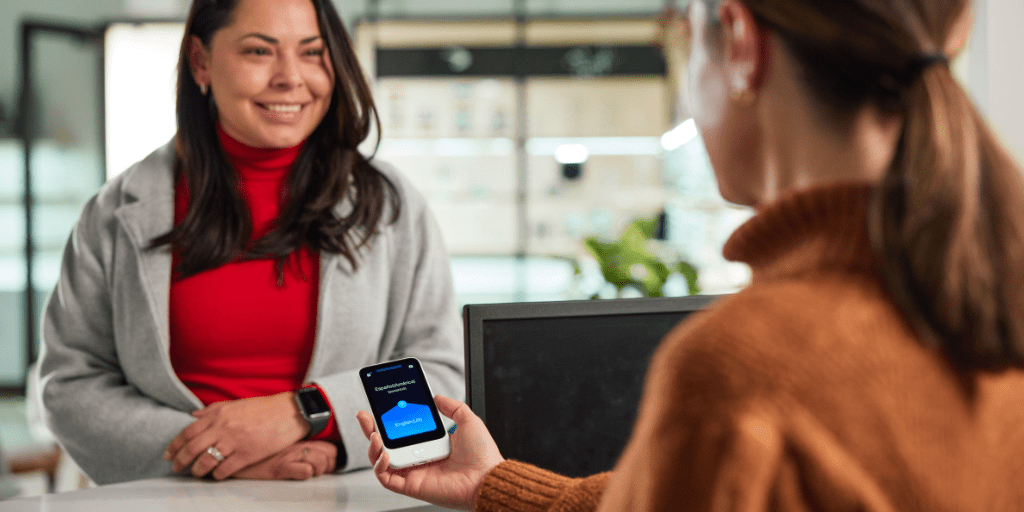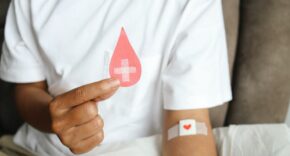
In healthcare across the UK, every second counts. This is especially true in departments like A&E, maternity, radiology, sexual health clinics and GP surgeries where patients often arrive unannounced with urgent needs. In these high-pressure environments, effective communication is critical—not just for delivering quality care but for ensuring patient safety.
As the UK becomes increasingly diverse, language barrier challenges are becoming more common and posing significant challenges.
With over a million adults in England and Wales unable to speak English well or at all, the healthcare system frequently grapples with delays and inefficiencies caused by communication breakdowns. The cost of interpreters—both financial and logistical—is immense. Meanwhile, reliance on informal methods like family members, bilingual staff, or non-compliant digital tools can compromise accuracy, confidentiality, safety and care quality.
Technology offers a way forward and the recent UK government budget announcement committed to improving technology for greater efficiency, which is a step in the right direction. At Pocketalk, we’re working within the healthcare sector to introduce portable translation devices that provide immediate, accurate communication across a broad spectrum of languages. By empowering healthcare workers, porters, admin and catering staff with these tools, we’re seeing how a small device can create big ripples of change—not just in clinical settings but throughout the patient journey.
Pocketalk offers a cost effective, secure solution. Our handheld device instantly translates over 84 languages in both audio and text. In addition, our Ventana management provides tailored device management, empowering healthcare providers to monitor and analyse translation activity to make more informed operational decisions. This valuable insight, which is only accessible to personnel who need to understand the context, helps to identify areas that may need additional translation support and highlights the most commonly required languages for effective communication.
Ventana prioritises the security of information and ensures it is protected with above industry standards through robust product features, stringent policies, and rigorous procedures. Users can have peace of mind, knowing their data is in safe hands while it is used to drive meaningful change within the organisation and improve efficiencies and patient care
In departments like A&E, time is a luxury that often doesn’t exist. Portable translation devices can work alongside other translation solutions to enable healthcare professionals to conduct initial assessments swiftly and accurately. In maternity wards, where intimate and sensitive discussions are crucial, these tools enable better understanding and trust. Meanwhile, in radiology or sexual health clinics—often dealing with complex instructions or potentially embarrassing conversations—they eliminate the need for an intermediary, preserving confidentiality.
Beyond clinical roles, non-medical staff are also reaping the benefits of more efficient solutions. Hospital porters, caterers, and receptionists use translation devices to ensure that every interaction, no matter how brief, adds to a seamless and inclusive patient experience. This holistic approach maximises efficiency while minimising the risk of errors across the board.
As it’s widely publicised, public sector funding in the NHS is complex and the truth is, the financial burden of interpreters on the NHS is significant. Technology reduces this dependency, providing cost-effective alternatives while ensuring immediate access to communication.
Pocketalk research, that we conducted earlier this year, highlighted just how much time is lost due to language barriers – emergency workers, for example, lose over a working week each year navigating these challenges. This equates to over 45 hours annually spent on overcoming obstacles instead of delivering care.
Moreover, our study revealed the serious risks posed by language gaps. Over half of emergency service workers report that these barriers have led to delays or complications, with 47% stating they’ve made situations more dangerous. In a hospital setting, the stakes are equally high. By integrating portable translation tools into workflows, healthcare providers can significantly reduce these risks while improving patient outcomes.
It’s important to recognise that language barriers don’t just affect hospitals. In primary care settings, such as GP practices and walk-in clinics, communication difficulties can slow down consultations and exacerbate patient anxieties. By extending the use of translation technology across primary and secondary care, we can create a system where language is no longer a barrier to timely and effective treatment.
As we look to the future, Pocketalk is committed to evidence-based innovation. We’re working with several healthcare settings on a research project to measure the impact of translation devices on care delivery. The results, due to be published soon, promise to provide valuable insights into how technology can transform patient communication across the NHS.
By reducing costs, saving time, and improving patient safety, translation tools are empowering healthcare professionals to focus on what they do best: delivering exceptional care. It’s time to embrace this innovation across the board and ensure that every patient’s voice is heard—loud and clear.
Jess O’Dwyer, General Manager Europe, Pocketalk











